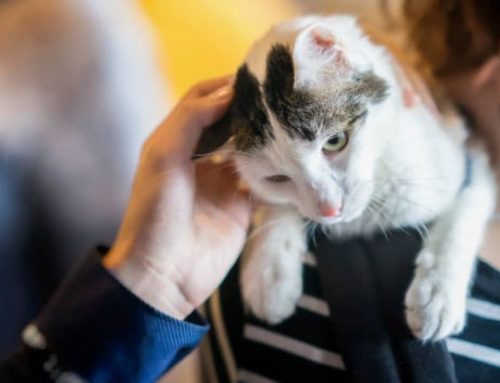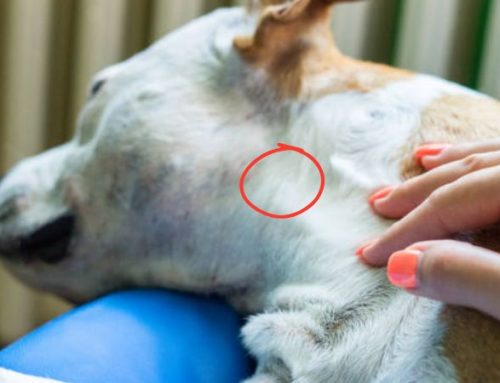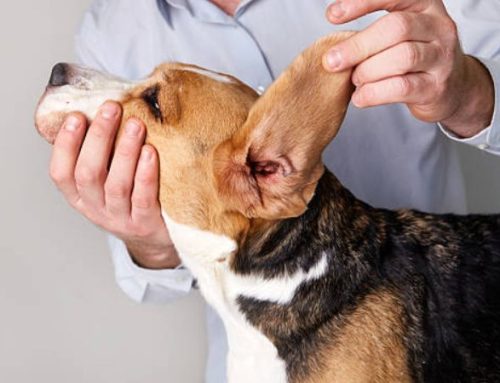Even the most graceful cats can have an occasional upset stomach, and a little vomit doesn’t always spell disaster. If your kitten seems otherwise happy, playful, and healthy, a single episode of vomiting is usually nothing to panic over. In this guide, Nexus-Pets will walk you through the reasons your kitten might be throwing up while still acting normal—and when it’s worth checking in with your veterinarian.
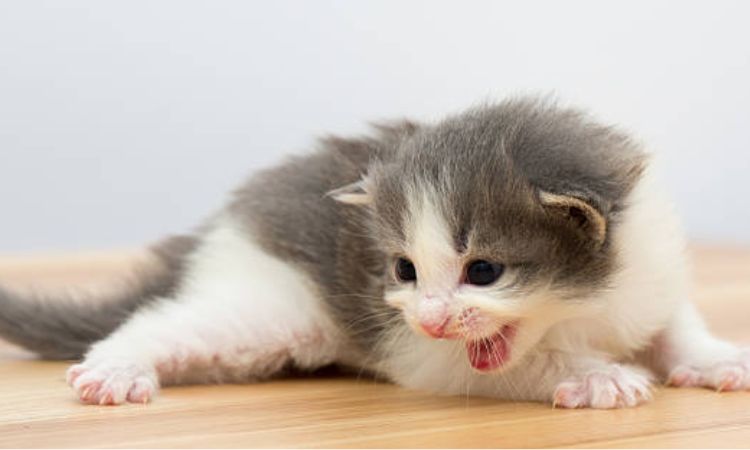
Common Reasons Kittens Throw Up but Still Act Normal
1. Eating Too Quickly
Some kittens are highly enthusiastic during mealtime, often gobbling down their food in a hurry. This rapid consumption can cause them to swallow air along with their meal, leading to immediate vomiting afterward. If you notice your kitten vomiting shortly after eating but otherwise behaving normally, eating too quickly is likely the culprit.
To help prevent this, consider using slow-feeder bowls, dividing meals into smaller portions throughout the day, or feeding multiple kittens separately to reduce competition and overeating. These strategies can help minimize discomfort and reduce the frequency of post-meal vomiting.
2. Sudden Diet Changes
Introducing a new food too abruptly can upset a kitten’s delicate digestive system. Even high-quality foods can cause vomiting if the kitten’s stomach isn’t given time to adjust. Sudden changes in flavor, texture, or protein source may trigger mild gastrointestinal distress.
To transition diets safely, gradually mix increasing amounts of the new food with the old over the course of 7 to 10 days. This allows the digestive system to adapt without causing undue stress. If vomiting persists during the transition, it may be necessary to slow down the process or revert to the previous diet while consulting your veterinarian.
3. Hairballs (Even in Young Cats)
Although hairballs are more commonly associated with adult cats, kittens can begin grooming themselves at an early age and ingest small amounts of fur. Occasionally, this fur accumulates in the stomach and is regurgitated, which can look like vomiting.
Hairball regurgitation typically appears as a small, tubular clump of hair, distinguishing it from true vomiting of partially digested food. While hairballs are often harmless, repeated episodes can cause discomfort or indicate a gastrointestinal issue. Regular brushing helps reduce loose fur, and there are kitten-safe hairball remedies or specialized diets designed to prevent fur accumulation.
4. Food Intolerances or Sensitivities
Some kittens may have difficulty digesting certain proteins, dairy products, or filler ingredients commonly found in commercial cat foods. These sensitivities can cause intermittent vomiting, mild diarrhea, or gassiness. Unlike severe allergies, food intolerances do not necessarily involve an immune response but can still lead to gastrointestinal upset.
Pet parents should monitor their kitten’s reactions to specific foods and watch for chronic vomiting, poor coat condition, or digestive disturbances. If intolerance is suspected, veterinarians often recommend limited-ingredient diets or hydrolyzed protein formulas to identify and manage the offending ingredient.
5. Mild Gastrointestinal Upset
Kittens are naturally curious and often explore their environment with their mouths, nibbling on grass, dust, or small household objects. Consuming these unusual items can irritate the stomach lining and trigger brief vomiting episodes. In most cases, this mild gastrointestinal upset resolves on its own without lasting effects.
To prevent recurring episodes, remove access to potential hazards, provide safe alternatives like cat grass, and observe the kitten’s behavior. Persistent or severe vomiting, however, warrants veterinary attention to rule out underlying gastrointestinal disorders or obstruction.
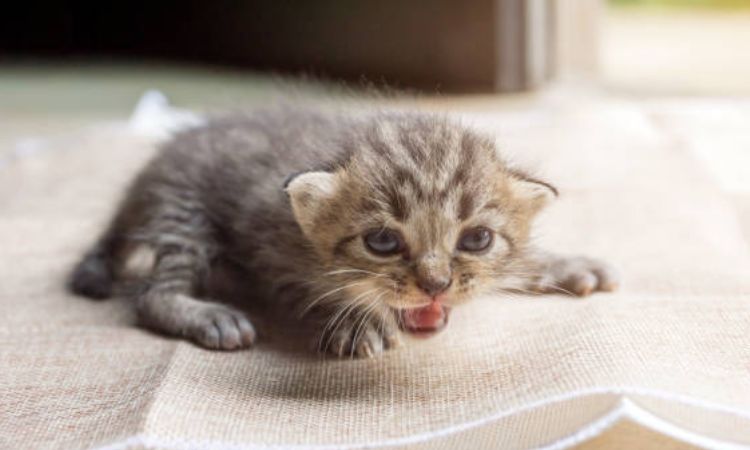
When Vomiting Is More Concerning
While occasional vomiting can be relatively harmless in cats, certain signs indicate that your feline may need prompt veterinary attention. You should be more concerned if your cat exhibits any of the following:
- Frequent vomiting: Vomiting more than once within 24 hours can signal an underlying issue that requires medical evaluation.
- Signs of dehydration: Lethargy, dry or sticky gums, sunken eyes, or decreased skin elasticity are red flags that your cat may be dehydrated.
- Unusual vomit content: The presence of bile, blood, or worms in the vomit is never normal and should prompt immediate veterinary care.
- Weight loss despite eating: If your cat continues to eat but is losing weight, it may indicate malabsorption, gastrointestinal disease, or other systemic issues.
- Combination of vomiting and persistent diarrhea: Concurrent gastrointestinal symptoms increase the likelihood of a more serious condition that requires a vet’s assessment.
Even if your cat appears otherwise normal—playing, eating, and grooming—behavior alone does not always reflect health. Subtle signs can indicate underlying problems, so consistent observation and timely veterinary care are essential for your cat’s well-being.
Potential Medical Causes (That Need a Vet Check)
While occasional vomiting can be benign in kittens, certain medical conditions can lead to vomiting and require professional evaluation. These include:
- Parasites: Roundworms, hookworms, and other intestinal parasites are common in kittens and can cause vomiting, diarrhea, and poor weight gain. A fecal exam is often needed to identify and treat these infections effectively.
- Infections: Viral or bacterial infections can upset a kitten’s gastrointestinal system. Common examples include feline panleukopenia, upper respiratory infections with secondary digestive upset, or bacterial gastroenteritis. Prompt veterinary assessment ensures appropriate treatment.
- Foreign body ingestion: Kittens are naturally curious and may swallow string, small toys, hair ties, or other indigestible objects. These can become lodged in the digestive tract, leading to vomiting, abdominal pain, or intestinal obstruction, sometimes requiring surgery.
- Pancreatitis and other gastrointestinal disorders: Though less common in kittens, inflammation of the pancreas or other GI issues can occur and may manifest as repeated vomiting, lethargy, or reduced appetite.
Some kittens are born with congenital abnormalities or underlying organ dysfunction, such as liver or kidney disease, that can cause vomiting. Early detection through veterinary exams is crucial for managing these conditions.
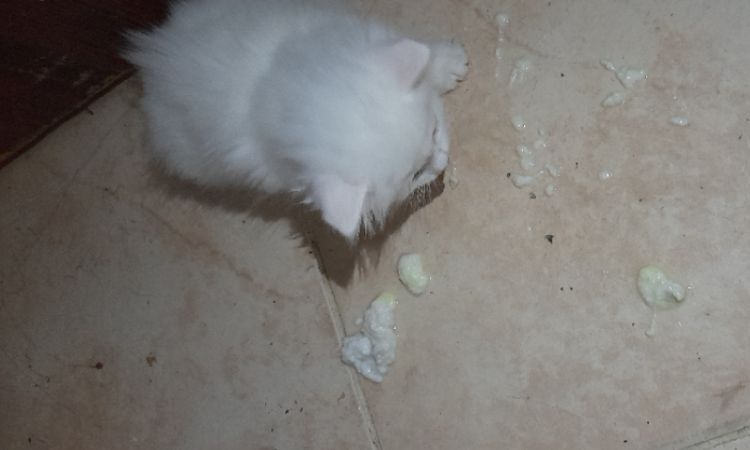
What You Can Do at Home
Even if your cat is vomiting but otherwise acting normal, there are several steps you can take at home to support their health and help identify potential triggers:
Monitor Vomiting Frequency and Triggers
Pay close attention to how often your cat vomits and under what circumstances. Note patterns related to meal times, activity levels, or exposure to new environments or objects. Understanding these triggers can help you manage the problem and provide useful information to your veterinarian if needed.
Keep a Vomiting Diary
Recording details about each vomiting episode is extremely helpful. Include the time of day, the type of food recently eaten, the appearance of the vomit (e.g., hair, undigested food, bile), and any other symptoms such as lethargy or diarrhea. Over time, this diary can reveal patterns that may point to dietary sensitivities, hairball issues, or other causes.
Ensure Hydration
Vomiting can quickly lead to dehydration, so make sure your cat always has access to fresh water. You can encourage drinking by offering multiple water bowls around the home or providing a cat water fountain. Proper hydration supports digestion and helps prevent secondary health issues.
Feed Small, Frequent Meals
Instead of a few large meals, offer smaller portions several times a day. Smaller, more frequent meals are easier on the stomach, reduce the risk of nausea, and may prevent vomiting caused by eating too quickly.
Avoid Unsafe Foods
Do not give your cat human foods, cow’s milk, or any treats that are not specifically designed for cats. Certain human foods can irritate the digestive system or be toxic, and even small amounts of milk can cause vomiting or diarrhea in many cats. Stick to nutritionally balanced cat food recommended by your veterinarian.
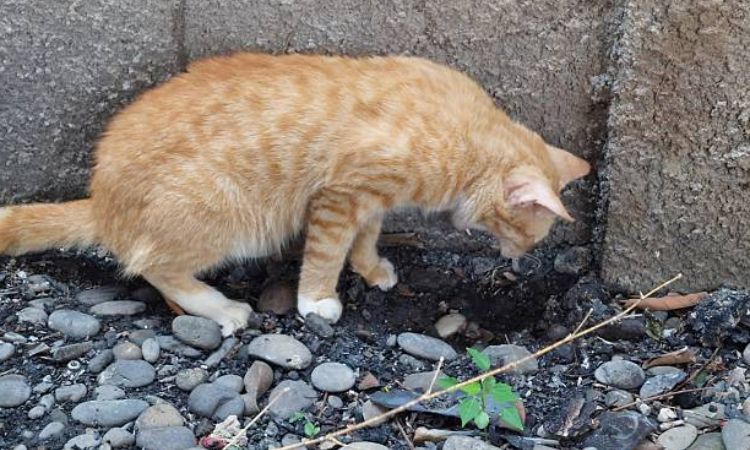
When to Call the Vet Immediately
Even if your cat seems fine otherwise, seek veterinary care right away if you notice:
- Frequent vomiting: More than once in a day.
- Pain or lethargy: Unusual tiredness, abdominal discomfort, or loss of appetite.
- Blood in vomit or stool: Bright red or coffee-ground appearance.
- Refusal to eat or drink: Risk of dehydration.
- Deworming concerns: Vomiting despite up-to-date parasite treatment.
Prompt action can prevent complications and ensure your cat recovers safely.
While seeing your kitten throw up is always concerning, remember that an occasional hairball or a little overeating is often the simple explanation. However, if the vomiting continues, or if you notice any other changes—like a lack of appetite or lethargy—it’s time to call your vet.




